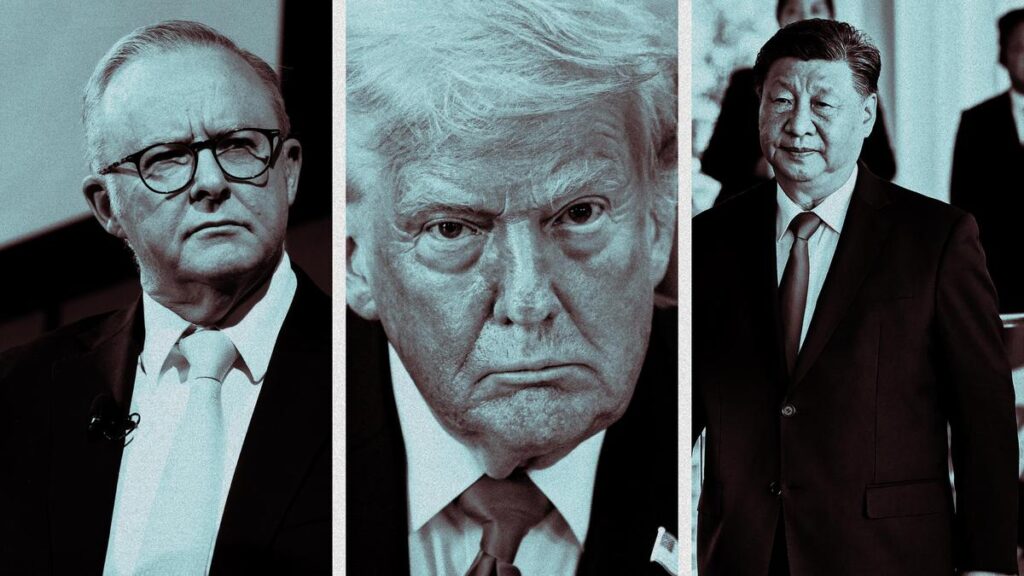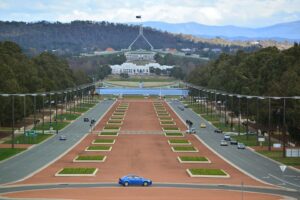
UPDATE: The trade conflict between the United States and China is intensifying as President Donald Trump threatens to impose an additional 100% tariff on Chinese imports starting in November. This escalation follows China’s recent move to tighten controls on products utilizing its rare earth resources, reigniting fears of a full-blown trade war.
In a bold statement, US Treasury Secretary Scott Bessent emphasized the urgency of rallying international allies, including Australia, to counter China’s actions. “If China wants to be an unreliable partner to the world, then the world will have to decouple,” he stated. Bessent highlighted that while the world desires to “de-risk,” signals from China suggest a worrying trend towards decoupling that could destabilize global supply chains.
This trade tension complicates the upcoming meeting between Prime Minister Anthony Albanese and President Trump, scheduled for next week. The stakes are high as Albanese aims to secure a statement of support for the AUKUS defense pact and seek potential tariff relief. Australia, which holds significant deposits of rare earths and critical minerals, finds itself in a unique position; while it controls 70% of global rare earth mining and over 90% of processing is done in China, Australia is seen as a more stable partner.
The impacts of these developments are already being felt in the market. Stocks in Australian rare earth miners have surged in anticipation of increased demand, as global reliance on China for these critical materials becomes a point of contention. However, analysts warn of the potential risks involved. Should the US and China escalate their conflict, Australia could face severe economic repercussions due to its significant trade relationship with China, its largest trading partner.
“De-coupling” from China could have disastrous effects on Australia’s economy, particularly given its dependence on iron ore exports. The prospect of having to choose between its largest trading partner and its closest ally raises significant concerns for Australian policymakers.
As tensions rise, the world watches closely. The urgency of these developments calls for immediate attention, as the ramifications of a US-China trade war could reshape economic landscapes across the globe. With both nations at a critical juncture, the next steps will be crucial in determining the future of international trade relations.
Stay tuned for updates as this situation develops.




